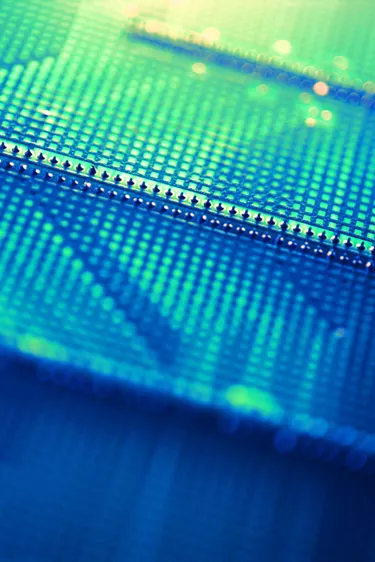
Every technology has its advantages and disadvantages, and advances in banking are no different. Accessing your money through an automatic teller machine (ATM) anytime you like is convenient. On the other hand, that freedom can allow easier access to your money for someone who has stolen your ATM card. These changes are here to stay, so you'll want to understand the benefits and drawbacks of banking technology to figure out how best to deal with them.
Online Banking
Video of the Day
Online banking empowers you to pay bills and transfer money without leaving your living room. Unfortunately, it also allows new ways for criminals to seize control of your bank accounts and other information associated with them. If a criminal finds out your online banking log-in information, for example, he can make money transfers and can probably find other numbers you don't want him to have. If this happens, the Federal Trade Commission provides guidance as to how you should deal with this kind of theft.
Video of the Day
Fast Credit
Advanced banking technology allows you to arrange for credit faster than in the past. Decades ago, obtaining credit was purely a paper-based process. Today consumers can acquire credit lines instantly. While many people enjoy the convenience of getting a car loan or store credit card within minutes, the temptation can lead them to borrow money they can't afford.
RFID Payment
Thanks to Radio-Frequency Identification (RFID) technology, you can pay for goods or services by simply waving your debit or credit card in front of a reader. The RFID chip inside the card broadcasts bank information wherever you go, which can be quite convenient; for example, instead of having to go into the gas station to pay, you can simply make sure your wallet is close enough to the reader. As Tony Lima, a writer for PC World, points out, scammers can get that information if they have their own scanner.
Website Interruption
Many consumers become reliant upon technology to pay bills or conduct other kinds of banking transactions. Ideally, this is a beneficial arrangement. For example, if you forget a credit card payment, you don't need to worry about whether your paper check will get to your credit card company in time. You simply log on and make your payment. If the bank's website suffers an interruption, however, you may be unable to send payments to creditors, incurring late fees or other consequences. Unfortunately, websites experience downtime on occasion. For example, the website for Chase.com went down in September 2010, causing problems for some of their customers.